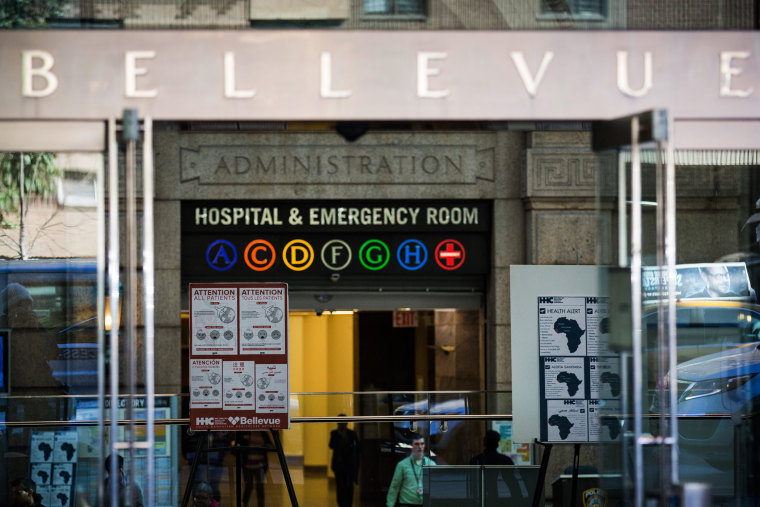Craig Spencer, the doctor with Ebola who briefly sent New York City into a panic, is getting some good news Saturday from hospital officials.
Spencer’s condition has been upgraded from “serious but stable” to “stable,” according to a statement from the NYC Health and Hospitals Corporation.
Spencer, 33, will continue to receive treatment at Bellevue Hospital Center, and he will remain in isolation, according to the statement.
The doctor recently traveled to Guinea in an effort to treat patients suffering from Ebola, and shortly after returning he became the first person in a city of eight million to test positive for the deadly virus. Following visits to a Brooklyn bowling alley and other parts of the city, including his home in 147th Street in Harlem, Spencer reported having a fever of 100.3 degrees. City health officials began retracing Spencer’s steps as the city’s residents became concerned with possible infection.
On Friday. the city announced that after careful physician review, one individual who had come into contact with Dr. Spencer would be subjected to active monitoring as a precaution. According to the New York City Department of Health and Mental Hygiene the unidentified individual did not have exposure that was consistent with how Ebola ia transmitted.
The Ebola virus is spread through direct contact with bodily fluids, and a person must be displaying symptoms of the virus in order for transmission to occur. Ebola cannot be spread through the air.
The virus has made daily, if not hourly headlines, since Thomas Eric Duncan, of Liberia, traveled to Dallas in September, and became the first patient in the U.S. diagnosed with Ebola.
Recently, the virus has taken on a political shade ahead of the midterms, as Republican New Jersey Governor Chris Christie initially quarantined Maine nurse Kaci Hickox after she returned to the U.S. from West Africa. Despite treating Ebola patients, Hickox showed no signs of the virus, and she threatened to sue Christie if he refused her the right to travel to her Maine home. Maine’s Republican Governor Paul LePage is up for re-election, and he has vowed to use the full extent of his authority regarding Hickox.
For his part, President Obama has opposed state quarantine policies for individuals returning from West African countries with Ebola.
"If we're discouraging our healthcare workers who are prepared to make these sacrifices from traveling to these places in need, then we're not doing our job in terms of looking after our own public health and safety," Obama said recently. "We can't discourage that, we've got to encourage it and applaud it."
Nurse Nina Pham, a Texas nurse who helped treat Duncan, was diagnosed with Ebola on October 11, and she was released on October 24 after beating the virus. Texas nurse Amber Vinson, who also treated Duncan, has been declared free of Ebola.
